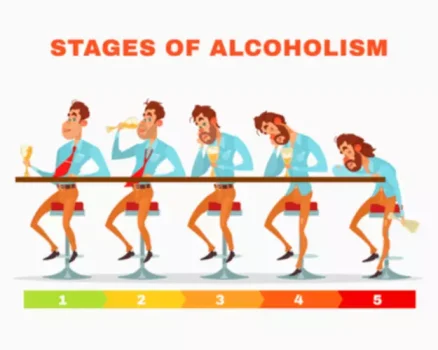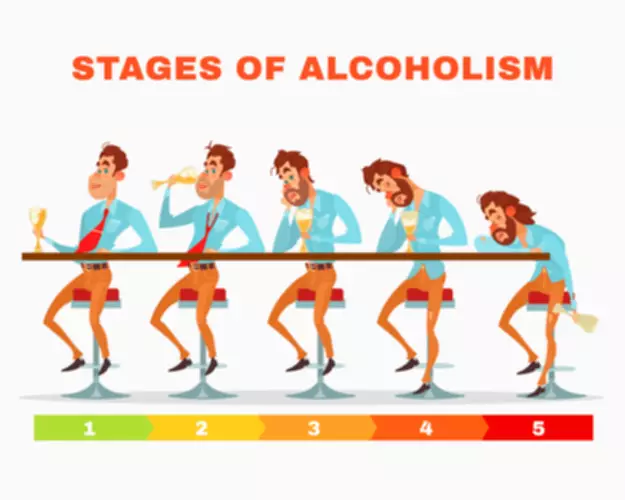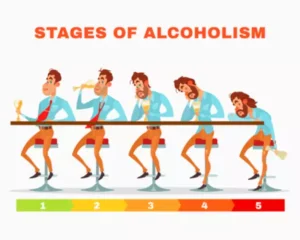Health Topics: Genetics and Alcohol Use Disorder National Institute on Alcohol Abuse and Alcoholism NIAAA

While genetic predisposition is a significant factor in the development of alcoholism, it is important to remember that genes are not the sole determinant. Environmental factors such as family history, social and cultural influences, and individual experiences also play a crucial role. By taking a comprehensive approach that considers both genetic and environmental factors, researchers and healthcare professionals can better understand and address the complex nature of alcohol addiction. Yes, having a family history of alcoholism can increase an individual’s risk of developing the condition. Studies have shown that genetic factors contribute significantly to the risk of alcoholism, with individuals who have relatives affected by alcoholism being more susceptible themselves.

Substances
Researchers agree that it is important to be able to identify the biological factors that make a person predisposed to this disease as this can be a vital step in helping to control it. Genes alone cannot determine if someone will become an alcoholic, as environmental factors also play a significant role. While specific genes have been identified that may contribute to the development of alcoholism, it is believed that multiple can being an alcoholic be genetic genes and interactions between genes and the environment play a role. While it is known that there is a strong genetic component to the disease, the specific inheritance patterns are still not fully understood.

The Role of Genetics
- Dr. Wakim is a board-certified psychiatrist with a passion for and expertise in addiction, mood disorders, trauma-related disorders and the subspecialty of interventional psychiatry.
- The GABA receptor gene encodes proteins that are involved in the functioning of GABA receptors in the brain.
- Supportive networks can also include community support groups specifically tailored to individuals with a genetic predisposition to alcoholism.
- People who struggle with depression, anxiety, or other mental health disorders may be more likely to turn to alcohol as a way to cope.
- Some researchers have hypothesized that there may be large panels of rare functional variants, each of large effect, that predict risk for alcoholism with different variants occurring in different people.
However, a crucial disclaimer is that these markers don’t guarantee one will become a heavy drinker. The National Institute on Drug Abuse highlights a potential overlap between genes related to alcoholism and opioid misuse. There are gene variations that could predispose a person to mental illnesses like depression and schizophrenia. People with mental illness are more prone to turn to alcohol as a coping mechanism. People with enzyme variants that allow for the fast buildup of acetaldehyde from alcohol (ethanol) are at less risk for addiction compared to those who metabolize alcohol efficiently to acetate.

The Genetics of Alcoholism

For studies of rare variants, families are quite valuable for sortingout true positives from the background of individual variations that we allharbor. These professionals can help individuals understand the implications of their genetic predisposition and develop strategies for managing their risk. They can also provide therapy and counseling to address any emotional challenges that may arise from their genetic predisposition, helping individuals build resilience and develop coping mechanisms. Epigenetic interventions for alcoholism aim to reverse or mitigate the harmful effects of these modifications on gene expression.
- Genetics can influence alcohol tolerance and alcohol intolerance, affecting how individuals respond to alcohol consumption.
- Understanding the genetic predisposition to alcoholism is crucial in order to develop effective prevention strategies and interventions.
- It is now appreciated that a whole spectrum of allele frequencies andeffect sizes may play roles, from common variations with small effects throughrare variants of large effect.
- In the context of alcoholism, pharmacogenetics plays a crucial role in the development of personalized treatment strategies.
If you spend time Sobriety around people who drink often or who don’t discourage heavy drinking, you may be more likely to develop alcoholism yourself. Alcoholism can have significant adverse effects on mental health, exacerbating existing conditions and leading to the development of new ones. Chronic alcohol misuse can contribute to mood disorders like depression and anxiety, impair cognitive function, and increase the risk of suicide. Alcohol dependence can also worsen symptoms of pre-existing mental health conditions, making treatment more challenging.
Alcoholism and Genes: Nature vs Nurture
But it does mean that you’re more susceptible to the disease, and that you may need to take extra precautionary measures to protect yourself from its potentially harmful effects. Beyond that, Palmer and his team want to develop a better understand of how the genes they’ve identified might influence these traits, but using animal and cellular models. Individuals who grew up in a home where alcohol use disorder was the norm may be impacted in ways that they do not realize.
- Although the field of epigenetic interventions for alcoholism is still in its early stages, it holds great promise for improving our understanding of the disease and developing new treatment strategies.
- If you believe you are predisposed to the alcoholism gene, it’s important to learn more about the risk factors and preventative measures you can take to lower your risk for alcohol addiction.
- These findings suggest that it’s not just a single gene defect but a combination of genes that predispose individuals to alcoholism.
- In conclusion, while genetic factors play a significant role in the predisposition to alcoholism, the emerging field of epigenetics highlights the importance of studying the epigenetic influence on this disease.
- This finding led to the discovery of the association of GABRA2 with AUD, a robust, widely replicated finding that will be discussed below.
- When it comes to alcoholism, certain genes have been identified that increase the susceptibility to developing an addiction.
Genetic screening for alcoholism risk can help individuals make informed decisions about alcohol consumption and take preventative measures if necessary. Additionally, it can aid healthcare providers in developing personalized treatment plans for individuals with a genetic predisposition to alcoholism. Although genes and family history seem to play a significant role in alcohol addiction, they are far from the only factors. Alcohol use disorder ultimately develops from an interaction between alcohol and your brain chemistry.
What does genetic risk mean?
Genetic disorders are diagnosable conditions directly caused by genetic mutations that are inherited or occur later in life from environmental exposure. Your genetic risk refers to the likelihood that specific genes or genetic variants passed down to you will lead to a particular condition. As we’ve learned more about how genes play a role in our health, researchers have discovered that different factors can affect the expression of our genes. But while genetics influence our likelihood of developing alcoholism, it’s more complex.
In addition, religious background and culture may also play a role in a person’s decision-making. While heredity and genetics are closely linked, they can mean different things from a medical perspective. Dr. Wakim is a board-certified psychiatrist with a passion for and expertise in addiction, mood disorders, trauma-related disorders and the subspecialty of interventional psychiatry. He obtained his medical degree from West Virginia University where he also completed his residency training, finishing as chief resident. Dr. Wakim co-founded and served as the CEO of Transformations leading to a successful merger with Shore Capital in May 2021.